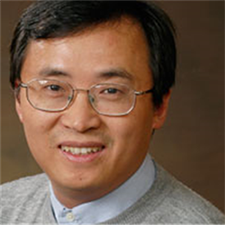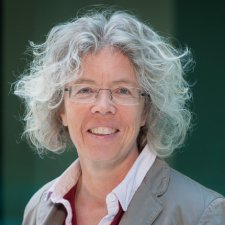Proceedings of the 7th International Conference
on Energy Harvesting, Storage, and Transfer (EHST 2023)
June 07 - 09, 2023 | Carleton University, Ottawa, Canada
The Plenary and keynote information for the 7th International Conference of Energy Harvesting, Storage, and Transfer (EHST 2023) is as follows:
Plenary Speaker

Dr. Ximing Cai
University of Illinois, USA
Keynote Speaker

Dr. Ursula Eicker
Concordia University, Canada

Dr. Ximing Cai
University of Illinois, USA
Professor Ximing Cai is a leading scholar in environmental sustainability assessment with biofuel development. Cai group published the first paper on global marginal land availability assessment for biomass production (Cai et al. 2004; Environ. Sci. and Technology – EST, doi:10.1021/es103338e) and a recent paper on water requirement and availability for biorefinery in the United States (Yang et al. 2022, EST, doi: 10.1021/acs.est.1c07747). Besides resources availability assessment, he has also worked on infrastructure requirement for regional biofuel development (Housh et al. 2014, J. of Infra. Sys. doi:10.1061/(ASCE)IS.1943-555X.0000238). Recently, Cai group has analyzed the stakeholders’ synergy for bioeconomy (Leibensperger, et al. 2021 doi: 10.1016/j.rser.2020.110613) and developed a bioenergy community communication model – an agent-based model simulating the behaviors and interactions among multiple stakeholders including biomass producers, refinery industries, rural communities, government agencies, and NGOs (Yang et al. 2022, Renew. & Sust. En. Rev., doi: 10.1016/j.rser.2022.112745). He served as Section Editor, Biofuel, Current Sustainability/Renewable Energy Reports, 2014. He is elected Fellow of Am. Geo. Union (AGU) and the 2023 awardee of Am. Sco. of Civil Engineers (ASCE) Julian Hinds Award. He has worked as consultant to the World Bank, United Nations, and other international agencies. Before joining the faculty of the University of Illinois in 2003, Professor Cai was Research Fellow at the International Food Policy Research (IFPRI) Institute in Washington, D.C. He holds B.S. in Water Resources Engineering (1990) and M.S. in Hydrology and Water Resources (1994) from Tsinghua University, Beijing, and Ph.D. in Water Resources Engineering (1999) from the University of Texas at Austin.
Topic of Plenary:
Stakeholder Synergy for Cellulosic-based Bioeconomy in the United States

Dr. Ursula Eicker
Concordia University, Canada
Prof. Ursula Eicker is the Canada Excellence Research Chair (CERC) in Smart, Sustainable and Resilient Cities and Communities at Concordia University Montréal. A German physicist, Eicker has held leadership positions at the Stuttgart University of Applied Sciences and its Centre for Sustainable Energy Technologies. She coordinated many international research projects in the fields of building energy efficiency, renewable energy systems and urban scale simulation.
Since June 2019, she leads an ambitious research program to establish transformation strategies toward zero-carbon cities. Around 50 graduate students work on decarbonisation pathways in the domains of the built environment, renewable energy systems, sustainable transport and circular economy. An urban data analysis and modeling framework integrates the multidisciplinary work. The 7 year research program received 10 million CAD government funding and is supported by a further 10 million Dollars by Concordia University. In November 2020, Prof. Eicker founded Concordia’s Next Generation Cities Institute, which groups 14 university research centers and 200 researchers from all faculties. Three interdisciplinary research clusters deal with Built and Natural Environments as the hardware, Mobile, Secure and Sharing Cities as the software and Design, Arts, Culture and Community as the experience of the city. The Institute addresses the challenges of the urban transformation with a transdisciplinary approach and develops tools and strategies for a sustainable future. Prof. Eicker has published 7 Books, 24 book contributions, 128 Peer Reviewed Papers and 335 Conference Papers.
Topic of Keynote:
On The Role of Thermal Storage for Demand Response in Building Clusters